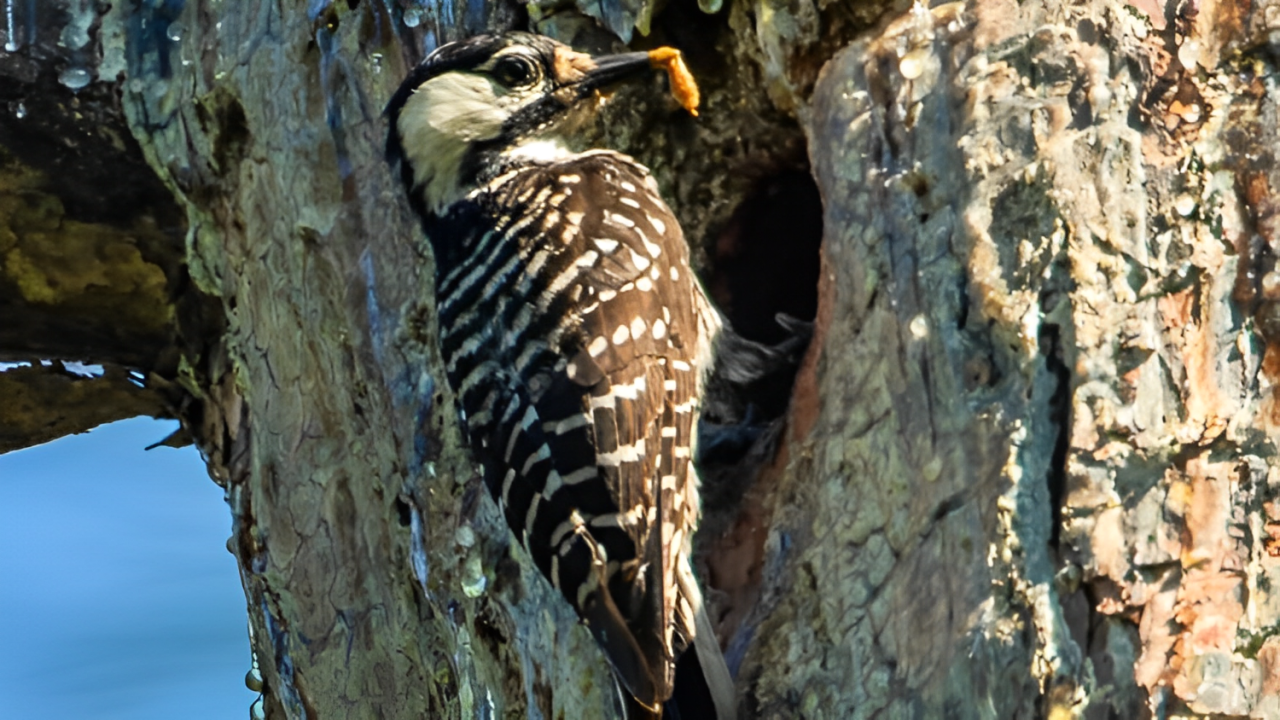The South Carolina Department of Natural Resources (SCDNR) made an exciting announcement on Tuesday: the red-cockaded woodpecker is no longer classified as a federally endangered species. This achievement is a testament to decades of dedicated conservation efforts in South Carolina and across the Southeast region.
The red-cockaded woodpecker, a unique bird with specific habitat needs, has benefited from years of focused attention and habitat restoration. These birds are known for their remarkable ability to create cavities in living pine trees, a process that can take several years.
However, the result is a long-lasting shelter that can support them for decades. These birds also live in family groups, a behavior referred to as cooperative breeding, which further highlights their distinct lifestyle.
SCDNR credits the success of these conservation efforts to sustained land management practices aimed at supporting mature pine ecosystems. This type of environment is crucial for the red-cockaded woodpecker’s survival. According to the department, the shift from endangered to threatened status represents a significant milestone in this species’ recovery journey.
The department emphasized the importance of continued efforts to ensure the long-term survival of these birds. “Continued land management that supports the species and mature pine ecosystems will allow for the birds to persist into the future,” the post stated.
This news reflects the power of collaborative efforts between wildlife agencies, environmental organizations, and the public. While the reclassification to “threatened” indicates great progress, it also serves as a reminder that ongoing conservation is essential to maintaining the bird’s population and ensuring its stability for generations to come.
Note: Every piece of content is rigorously reviewed by our team of experienced writers and editors to ensure its accuracy. Our writers use credible sources and adhere to strict fact-checking protocols to verify all claims and data before publication. If an error is identified, we promptly correct it and strive for transparency in all updates.








